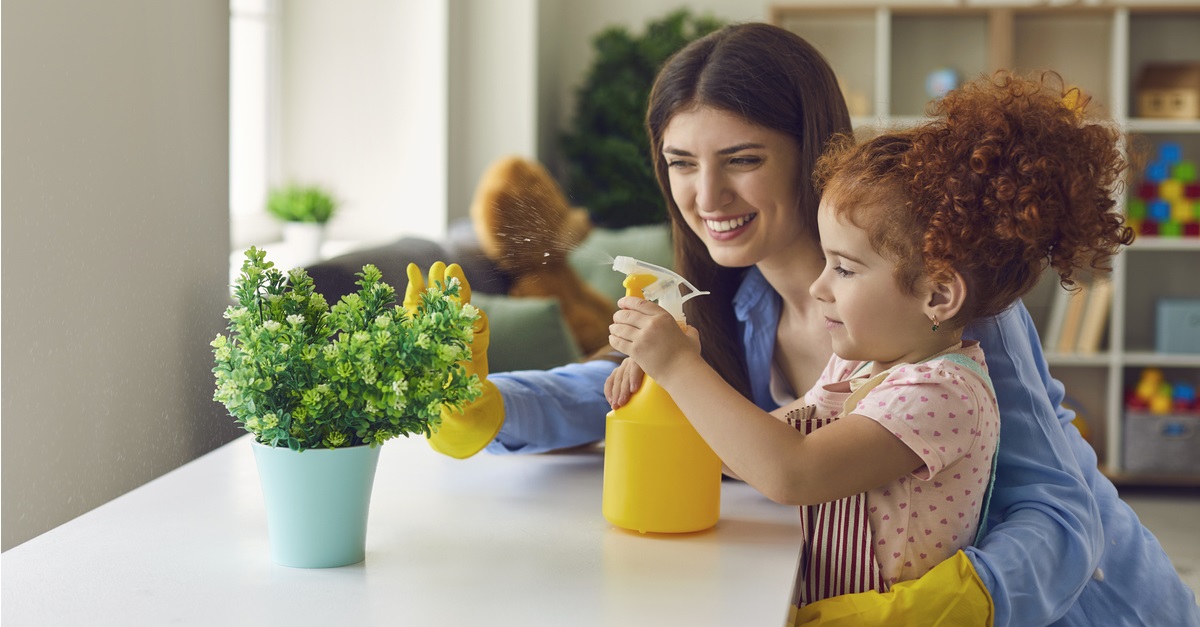
If there's something I can understand, it's messes. Especially messes that happen when you're a kid. Back in the day, I very much remember my mom telling me to clean my room. And I remember getting started, but then getting easily distracted, thus putting the entire operation at a standstill.
As a parent now, I often look back at those times to see what the disconnect may have been. Yes, kids think differently than adults — that's simply biology at play. But I think being handed such a big task was what threw me off. As a child, my mom gave me a project that, in my eyes, seemed impossible. There was too much mess to focus on getting it all cleaned at once.
But if the room cleaning had happened in smaller segments? I think it would have come more naturally. And that's why I insist that my own daughter help control her own messes, a little at a time. That's actually branched into a set of chores that are all her own. It's not simple to manage a 4-year-old when it comes to cleaning, but it's gotten so much easier with time.
But what about 'let kids be kids'?
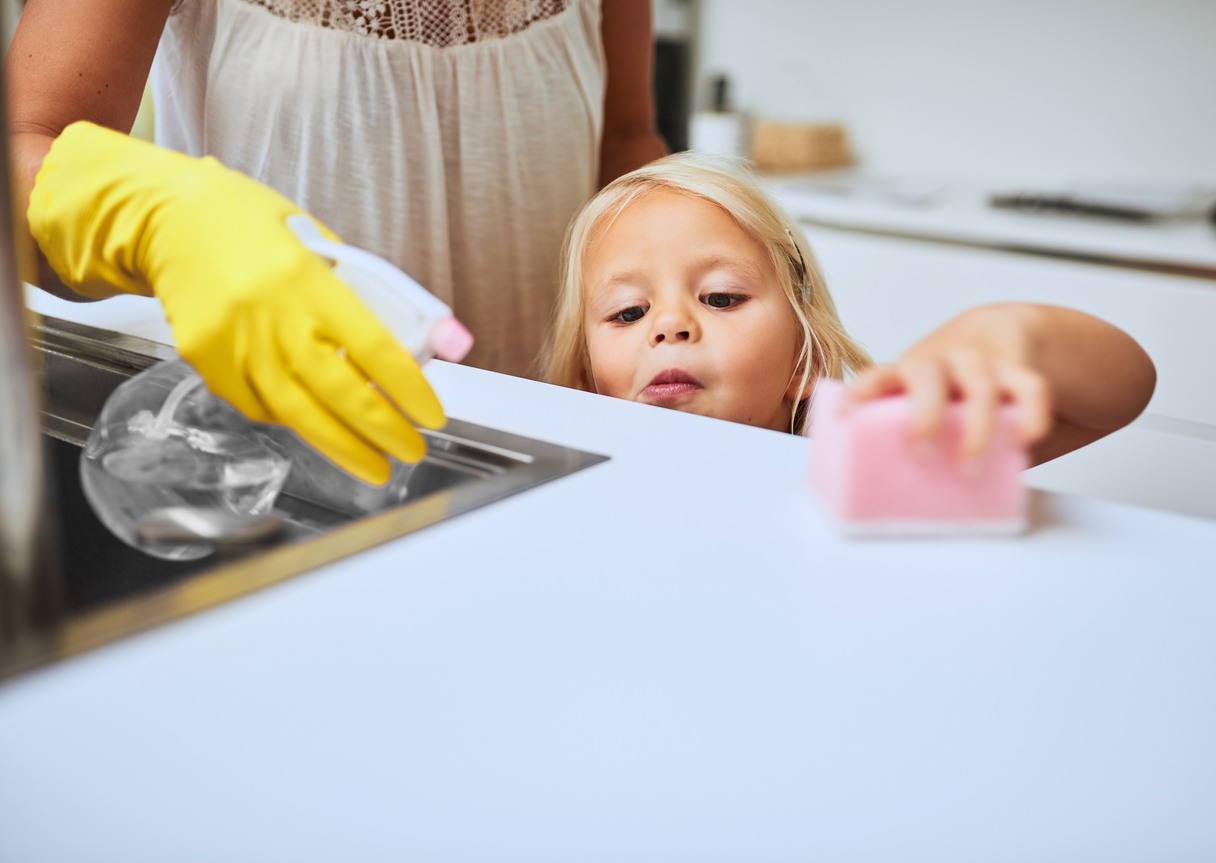
I don't want to take away from my daughter's childhood. And I don't think I'm doing that. Chores, like cleaning up after yourself, aren't a deterrent to a fun childhood.
When it comes to cleaning house, all of us need to pitch in in some way. I understand that I'm likely responsible for the bulk of it, mostly because it's a little more important to me these days. When the house is a mess, I start off my day in a bad mood. Even if the mess is my own (and often, it is), it's enough to put a damper on my morning.
I figure that it's always good to teach kids personal responsibility early. And showing the importance of that to my daughter is also a way for me to step up.
All chores should start out small.
Listen, I'm not forcing my 4-year-old to mow the lawn or mop the floors. Chores start small so that they're manageable in her eyes.
The first chore she learned is helping with cleanup after work. I ask her to pick up her toys from the playroom (which also doubles as my home office), and I offer to help. Sometimes, we make it fun. Thanks to Alexa, we have plenty of songs at our disposal. We've cleaned while belting out "Let It Go" on multiple occasions, but I'm always there to remind her of the task at hand when she forgets about cleaning in favor of her (above-average) Elsa impersonation.
That said, I try to make them fun.
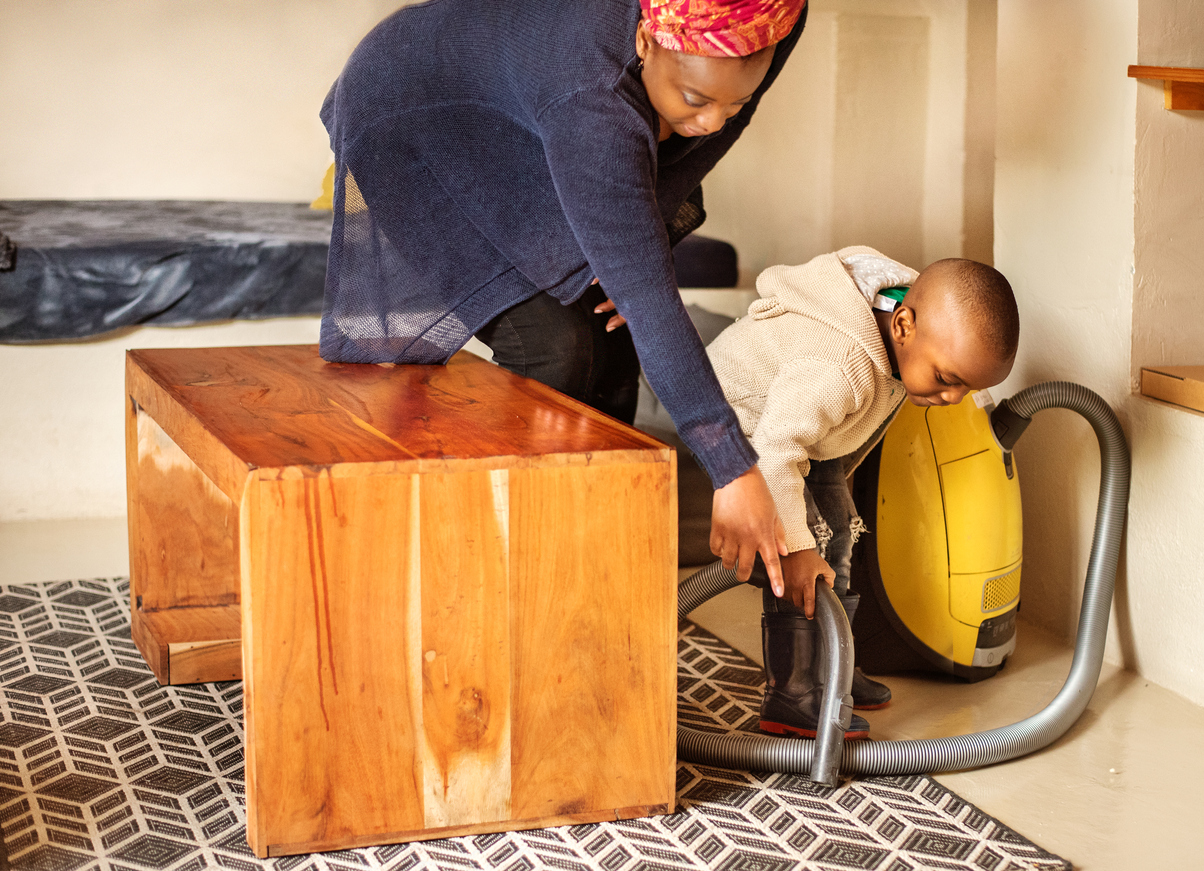
Cleaning isn't looked at as fun, and that makes it harder. As adults, we're used to powering through boring meetings, tasks, and things that don't necessarily fulfill us. For kids, it's tougher. So it's important to remember that a little bit of fun never hurt anyone.
My daughter actually has a mini-Dyson vacuum toy that (kinda) works, so we make sure to take that out whenever I'm vacuuming floors. Having the two of us together makes it more like we're a team of superheroes, battling dust and crumbs.
Other chores are often one part within the big project.
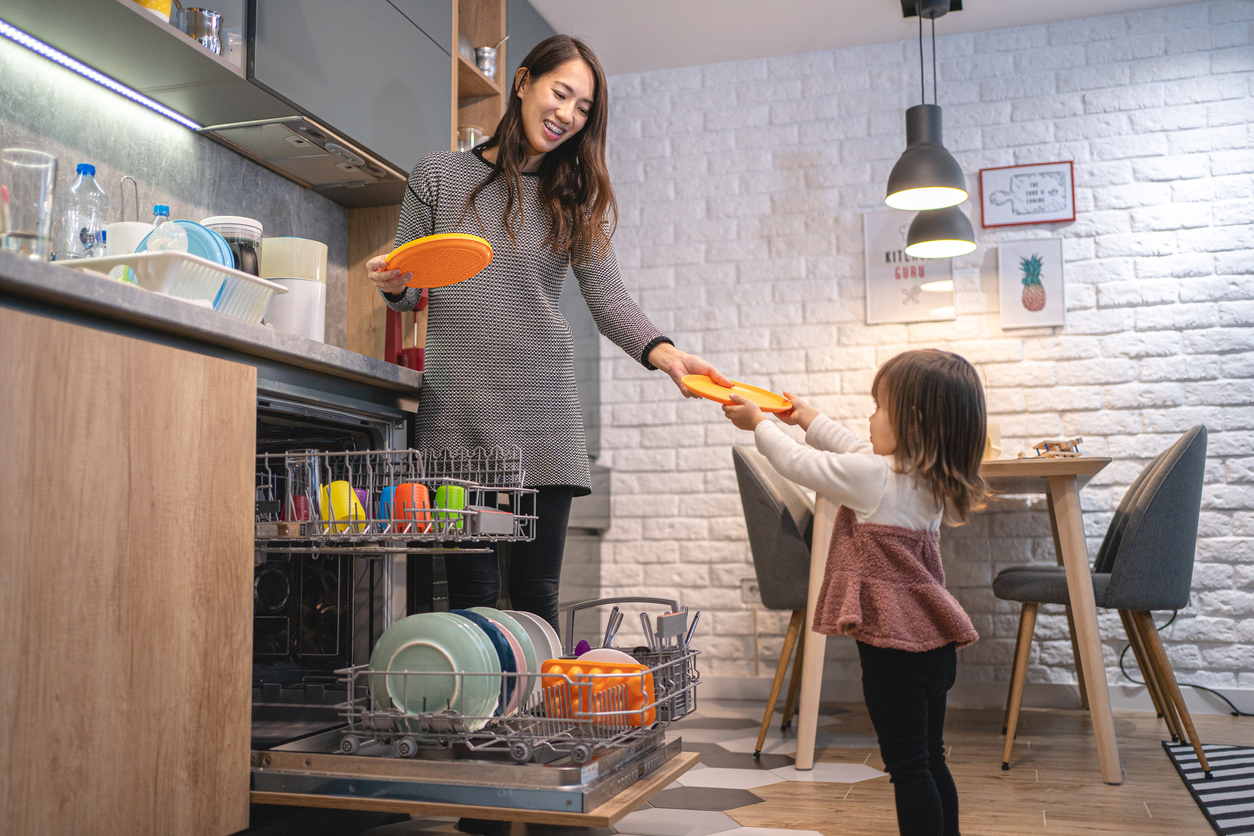
For example, I empty the dishwasher and reload it with the day's dishes right after dinner. I know that's a big (and possibly risky) chore for my daughter to take on. But she has the most important part of all. In the end, she gets to put the detergent capsule in. So she's always by my side when the chore is being completed, and she feels like she's involved. It's not just "mom's work" or "dad's work" but teamwork.
Yes, there are incentives.

I think my daughter is too young to really grasp the concept of money, even though I feel like an allowance will eventually be part of the plan. But for now, an incentive is yet another way to inspire her to clean up after herself. It's usually something like a bigger dessert, or some extra cuddle time before bed. Things that I know will make her happy but aren't complete game changers if she doesn't follow through.
When dealing with kids, it can be important to think like a kid. Part of the fun of having kids is being able to relive your childhood a little bit, so think about what you would have loved as a small incentive and make it happen for your child.
I'm aiming more for the habit than for perfection.
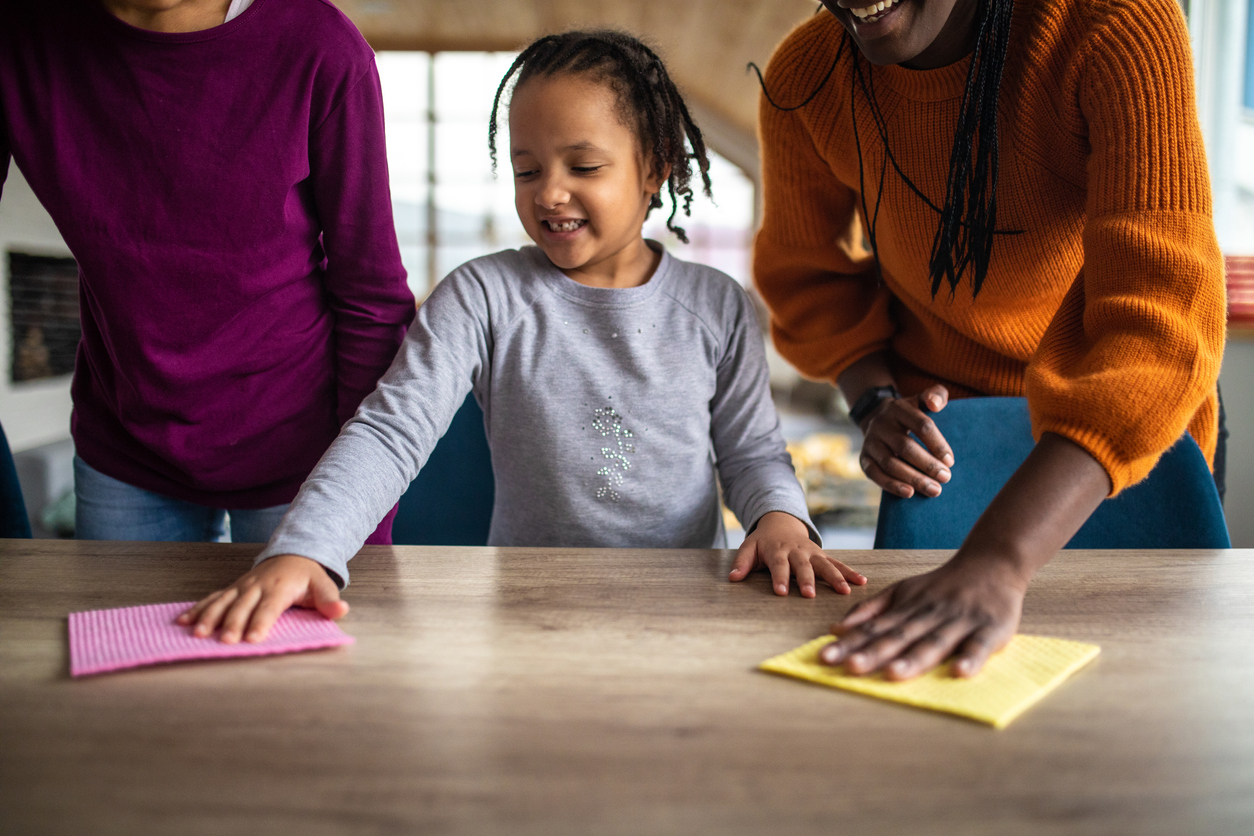
If you start incorporating these things into play, your child will know they're part of the routine — similarly to how they know to wash their hands after using the bathroom, or when they know to say "please" and "thank you." I don't want these things to necessarily be seen as chores as much as part of daily living.
Kids won't always get it right. Adults often don't get it right, either. But as she gets older, expectations will also grow.
Many young kids also enjoy having responsibilities.
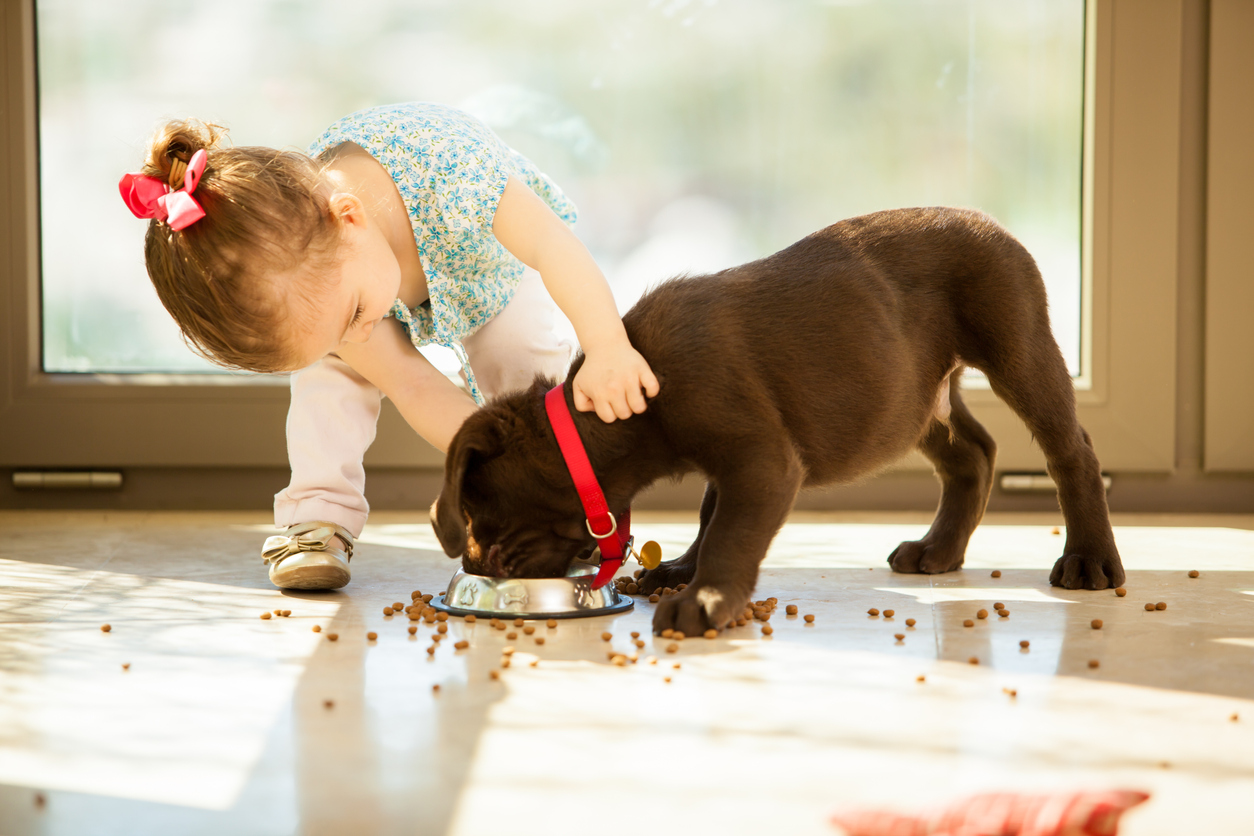
You might find that your child actually asks to help out more. Sometimes, it's a little inconvenient — especially if your kid happens to take a long time on a project that'd only take you a minute or two.
Embrace these moments. You never want your child to feel like they don't belong in the kitchen or living room, and oftentimes, telling them no may make them feel that way. Smaller chores to start out with can be as simple as wiping down the counter, dusting a shelf, or feeding the dog — the latter also happens to be one of my daughter's chores, with supervision.
It's important for all kids to participate.
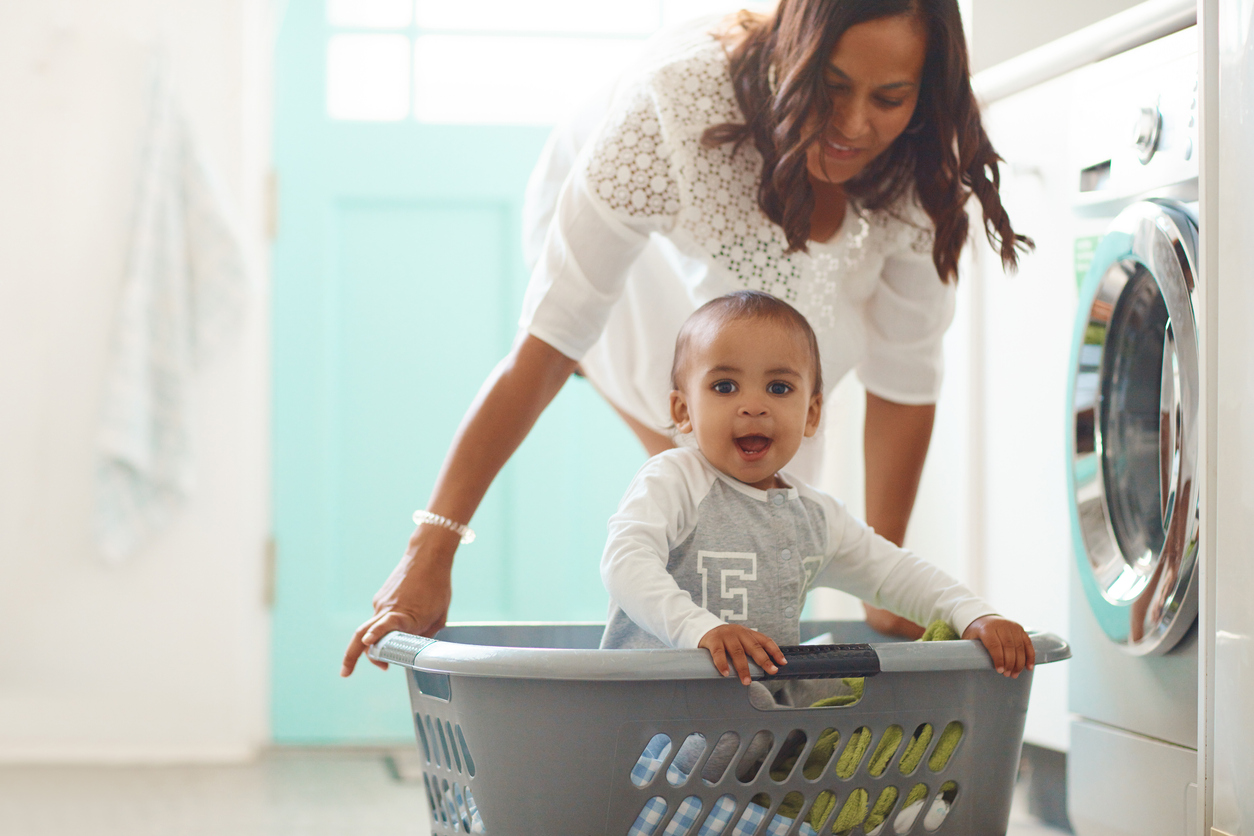
Even though our world is becoming much more open and understanding, there are still a bunch of stereotypical gender roles that go into cleaning. For example, a lot of men aren't taught how to clean by their parents — and I feel like that's a bit ridiculous. Cleaning the house and taking on chores are a way to take pride in the place you live and the items you have, and both boys and girls need to learn the basics. We live in a world where everyone is responsible for helping with a household income, so everyone should help pitch in with household chores.
That's an important lesson to remember when teaching your child the importance of cleaning. It's a way to value what you have. As time goes on, I feel like my daughter will be capable of taking on even bigger tasks, like laundry and taking out the garbage. And she might even enjoy it.




